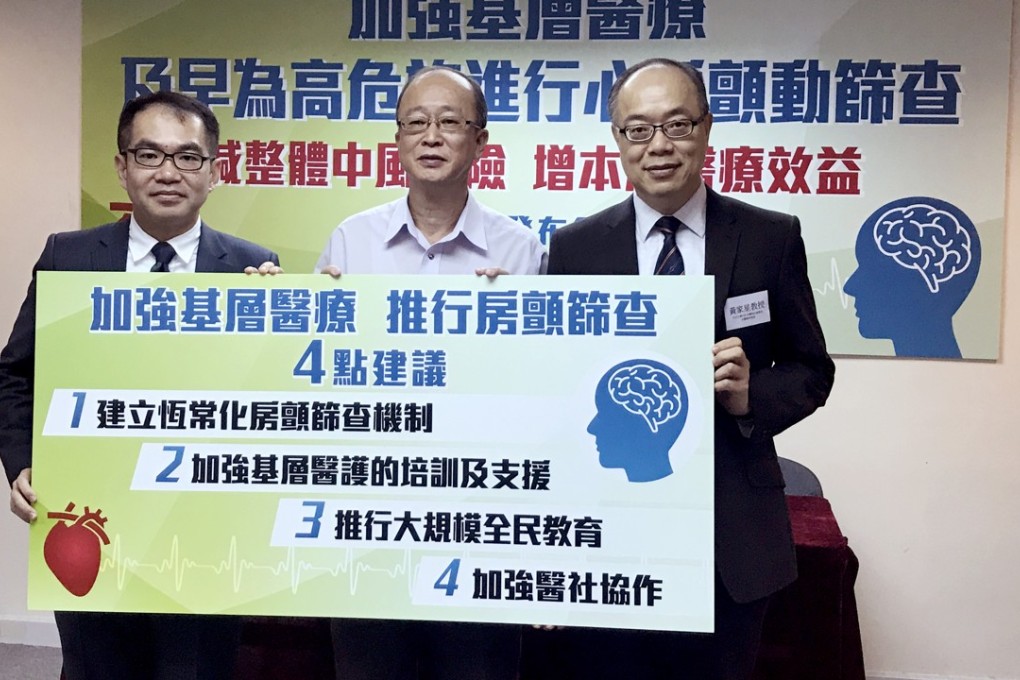Improve screening for heart disorder to prevent strokes, Hong Kong doctors urge
Experts say early diagnosis and treatment of atrial fibrillation could greatly reduce number of stroke cases

Top medical experts and a patients’ group in Hong Kong have called for wider screenings to be implemented for a common disorder leading to an irregular heart beat, in a bid to reduce the number of related stroke cases.
The move came after strokes caused by atrial fibrillation jumped from 84 cases in 1999 to 321 in 2014, according to data from Prince of Wales Hospital.
“Patients suffering from atrial fibrillation might not present any symptoms until a stroke occurs. Therefore it is necessary to detect this condition earlier,” Dr Lawrence Wong Ka-sing, emeritus professor at Chinese University’s department of medicine and therapeutics, said.
Hong Kong stroke victims take a virtual journey to recovery
The data, collected over 15 years, showed that atrial fibrillation, which leads to an irregular and rapid heart beat, was a significant factor in stroke cases among the elderly.
The disorder was related to the cases of close to half of ischemic stroke and mini-stroke patients who were aged 80 or older. Ischemic strokes occur when there is an obstruction within a blood vessel supplying blood to the brain.
Wong, who is also a specialist in neurology, said the condition led to the formation of bigger blood clots, and this could be more severe than stroke caused by other disorders.
The city’s public hospitals recorded about 13,000 stroke cases in the 2013-2014 financial year, but some cases could have been prevented, according to Professor David Siu Chung-wah, a cardiologist from the University of Hong Kong’s department of medicine.